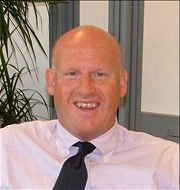Tutor HuntResources Maths Resources
The 9 To 1 Maths Gcse
Thoughts and directions regarding the new 9 to 1 Maths
Date : 16/07/2015
Author Information

Uploaded by : Gareth
Uploaded on : 16/07/2015
Subject : Maths
The new-look Maths GCSE is ready, Edexcel and other boards have their specifications and exams accredited, and everything is ready to roll from September when the next cohort of year 10s begins the journey towards exam success in the summer of 2017. The highest achievers will be awarded a grade 9. I suppose we will get used to this in time, even though we English are conditioned to the opposite sequence (1 or A, the first number or the first letter, being the top of the class).
Broadly, two categories of learners and their parents will be the most concerned: those who are thought to be close to the pass mark, and those who might just scrape into the highest grade. Ofqual have suggested that a smaller proportion of each year-group will "pass": the unofficial passmark or benchmark will be grade 5 and this will be the equivalent of a high C grade. Meanwhile at the top end grade 9 corresponds to roughly the top half of the previous A* band so once again a smaller proportion of the year-group will be awarded this grade.
Little is done to explain to parents that there is constant monitoring and adjustment to control the proportions of each year-group which gain each of the grades. It`s common sense - the idea of a top grade is worthless once we find more than say 1 in 8 getting it.
In Maths, it looks as though around half will "pass" (grade 5 or higher) and around 1 in 20 will get a grade 9.
In the "old" GCSE scheme, around 7 out of 10 passed (grade C or higher) and around 1 in 12 got an A*.
What`s new in the 9-1 GCSE Maths syllabus?
more formulae need to be remembered more reasoning has to be understood and applied, and expressed in written answers a small amount of new content: turning-points of quadratic expressions for instance. It is clear that students will need to apply more deeply their mathematical reasoning and thinking in order to get the top grade. This will further disadvantage pupils in noisier classes - it is only in the quietest and most highly-motivated classes that there will be time and space to develop the thinking and reasoning skills which will make the difference. This is where private tutoring needs to make the difference in future as we head towards the new exams.
This resource was uploaded by: Gareth
